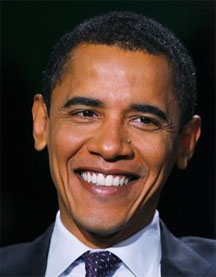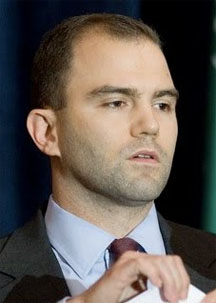WASHINGTON (Reuters) – With political battles looming at home, President Barack Obama will pursue more accomplishments abroad this year, keeping foreign policy high on the agenda despite a main focus on fixing the US economy.
Facing a 2012 reelection campaign, newly empowered Republicans in Congress and persistently high unemployment, Obama could use a few foreign policy successes to bolster his electoral appeal.
One is virtually preordained: all US troops are due to leave Iraq in 2011, formally ending an unpopular war started by Obama’s Republican predecessor, George W Bush, and giving the president a chance to declare a campaign promise fulfilled.
Others are more nuanced. The White House hopes to build on its “reset” in once testy relations with Russia, and is beginning the year by hosting Chinese President Hu Jintao — a key partner and competitor — for a state visit.

That visit, during which Obama is expected to press Hu to revalue China’s currency, could generate a foreign policy win if the two leaders make progress on economic issues critical to both countries.
“There’s an intersection between the economic competitiveness issues and foreign policy,” Ben Rhodes, a deputy national security adviser to Obama, said in an interview.
Some areas that lack an economic angle are less likely to be labelled foreign policy successes.
Obama’s relaunch of Middle East peace talks has faltered. The war in Afghanistan — one of the president’s top foreign policy challenges — continues to deliver high US casualties, and the start of a troop drawdown there is expected to be largely symbolic. He can expect no major wins there.
Republicans’ increased power in Congress, where November’s elections left them in control of the House of Representatives and boosted their numbers in the Democratic-controlled Senate, may not diminish Obama’s chance of achieving successes abroad.
“I think on a lot of the issues it strengthens his hand,” said Stephen Hadley, former national security adviser to Bush.
More sanctions on Iran
Hadley said Republicans would back the administration’s efforts in Afghanistan and support tougher sanctions on Iran, which he said was necessary to convince Iranian leaders to curb the country’s nuclear ambitions.

The White House sees room to do that, building on the progress it made rallying the international community around sanctions last year.
“We’ll continue to try to increase sanctions on them this year if they don’t show that they’re serious about diplomacy,” Rhodes said. He added: “Sanctions enforcement in its own right will be a focus.”
Iran, which the West fears is developing a nuclear arms program, says its nuclear ambitions are limited to energy production. It is scheduled to hold a second round of talks with world powers after a first round in December produced no tangible results.
If talks fail, getting support for more sanctions would not necessarily be a measure of US success, said Jon Alterman, director of the Middle East programme at the Washington-based Center for Strategic and International Studies.
“The point of sanctions is to encourage the Iranians to behave differently,” he said. “I don’t think the president is going to have a clear win with Iran for the rest of his term. The most important thing is to prevent a clear loss.”
Progress could also be made in North Korea, another trouble spot. Rhodes said he could envision a return to six-nation talks if the communist state backed off behaviour that has increased regional tension.
“We wouldn’t reward North Korean provocations by rushing back to talks,” he said. “I think (talks) could happen this year … The level of tension focused the issue in the minds of all the parties.”
South Korea on Thursday dismissed a North Korean call for unconditional talks to ease tensions, saying the offer was “propaganda” it did not take seriously.
Wins and losses
Washington may achieve clearer progress elsewhere in the world. The United States hosts the 21-member Asia Pacific Economic Cooperation forum in Honolulu this year, allowing Obama to focus on a region he has given high priority.
Rhodes said 2011 would see a greater White House focus on Latin America and Africa. Presidential trips to both areas are possible, though nothing is decided. One success Obama would especially like is a peaceful referendum in Sudan.
Oil-producing south Sudan is due to begin voting on Sunday on whether to secede.
But Afghanistan and Pakistan will pose significant ongoing challenges for the president. Rhodes said the US goal for those countries was to build Afghan security capacity and shrink the space in Pakistan in which militants operate.
Meanwhile, the troop withdrawal in Iraq may be Obama’s most concrete foreign policy success, and the White House will highlight that, even if some violence continued.
“Is there still going to be intermittent violence? Yes. But the trajectory of this country has been one of reductions in violence, reduction in US troops, and the political process holding that together,” Rhodes said.





